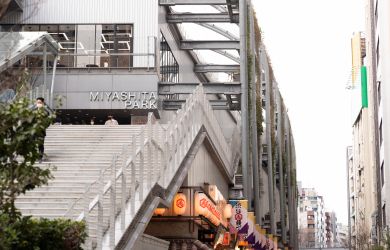
Originally published on metropolis.co.jp on August 2009

It’s not easy being the manager of a soccer team—whether it’s a squad of school kids or international players. Everyone’s a critic, from parents and fans to players, directors, referees and the media. But who’s really responsible for what goes on at a club?
I once wrote a piece titled, “Who Decides on Who Decides?” At the time, the Japan Football Association was said to be preparing to fire Japan coach Philippe Troussier. They didn’t in the end, and it would have been a gross injustice if they had. But the point of my article was this: what responsibility do the people who hire managers take when they fire them? More often than not, the answer’s simple: none.
In the last month, Alex Miller of JEF United and Pericles Chamusca of Oita Trinita—two of the most talented managers in the J. League—lost their jobs. Had their talent deserted them, or did their luck just run out?
I met Miller (pictured) the week he came to Japan. He had watched JEF United play once and had worked with the team for a week, but even then it was obvious that he already had a fantastic understanding of the kind of soccer played here, and what he had to do with his team.
What he had to do, simply put, was produce a miracle. Why? Well, because the owners of JEF United had decimated their team during the year before he arrived. Not only did the club sell off all their best players—Ilian Stoyanov, Naotake Hanyu, Yuki Abe, Satoru Yamagishi, Hiroki Mizumoto, Yuto Sato and Koki Mizuno—but Miller was the third manager to have come onboard in just six months. When JEF captain Tomi Shimomura told The Japan Times the team was “broken,” he wasn’t mincing his words.
Against the odds, Miller—who gave up a very nice job as first team coach at Liverpool FC to come here—quickly gained his players’ confidence, sorted out his C-grade squad, and instilled a work ethic that was second-to-none. This showed in their final game of last season, when they scored four goals in the final 20 minutes to beat FC Tokyo and stay in Division 1 of the J. League. The dour Scot told the media afterwards that he was pleased, but players would have to be cut and reinforcements brought in. Euphoria was noticeable by its absence.
True to form, JEF failed to give their manager the support he needed and provided him with another squad of misfits to try and stumble their way through the season. JEF were in 16th position in Division 1 when he was fired, but they were never going to do any better.
To be fair to Oita Trinita, the club was in desperate trouble by the time Chamusca was given his marching orders, having lost 15 out of 17 games. But the team was in similarly dire straits when Chamusca was first given the job in 2005, and the Brazilian had performed a miracle turnaround. Last year, Trinita finished fourth in the league and won the Nabisco Cup. This year, crippled by injuries to their top players, they just couldn’t get started.
The club was quick to fill the vacancy left by Chamusca’s departure with proven talent in the form of Ranko Popovic, formerly boss of Sanfrecce Hiroshima, and has shown signs of improving since. JEF, in keeping with their character, chose the cheap route by appointing assistant coach Atsuhiko Ejiri as boss.
At the end of the season, the two new managers will be judged again—and compared to their predecessors. The question remains: if they fail, who will take responsibility for the decision to hire them in the first place, and fire two good managers?
FC Tokyo vs. Oita Trinita and Yokohama F. Marinos vs. JEF United Chiba, Aug 29. See sports listings for details.





